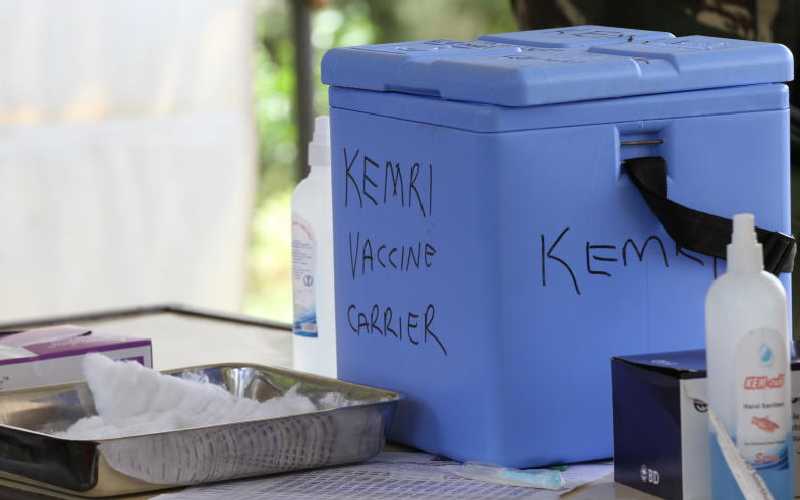×
The Standard e-Paper
Join Thousands Daily

AstraZeneca vaccine storage kit at the Kenya Medical Research Institute (KEMRI) Nairobi.[Elvis Ogina,Standard]
Kenya Medical Research Institute will conduct clinical trials of two Covid-19 vaccines from the US and China for approvals as the country struggles to address shortage of the jabs to fight coronavirus.